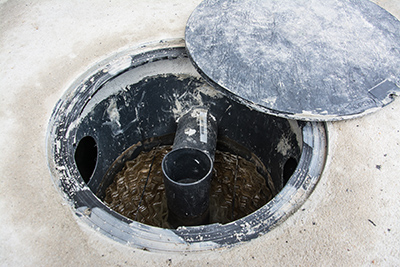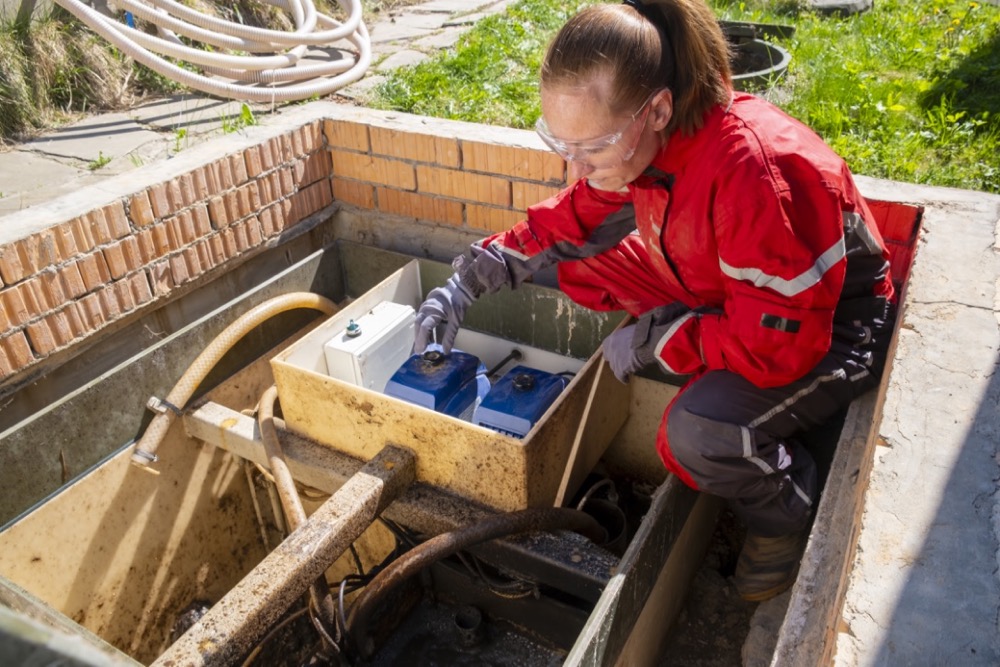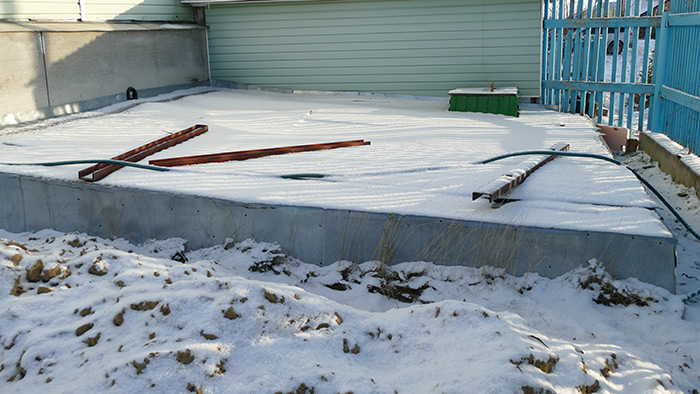
Maintaining a septic system is important, especially in the winter time. Here are helpful tips and instructions to help you keep your septic system healthy through the cold months.
A lot of new homeowners wonder whether or not cold weather can affect their septic systems. The answer is yes, and in a multitude of different ways.
It is important to understand how brutal these conditions can be on your home’s septic system. There are a number of different factors that can affect the many components of your septic system and (in some cases) cause them to freeze. These include soil and snow compaction.
If you want to prevent costly damage to your septic system, the first step is to know what the causes of any potential issues are in order to be able to seek out the proper solutions. Luckily, in this article, we will be exploring how, exactly, cold weather can impact a home’s septic system and how you can take the necessary steps to prevent problems from occurring.
Frozen Septic System Components
When winter hits, and the temperatures outside drop below (approximately) 32 degrees Fahrenheit, many of your septic system’s components can begin to freeze as a result.
Unfortunately, if your septic tank is frozen, waste won’t be able to be broken down quickly enough, which can lead to serious issues for the people living inside the home, condo, or apartment complex that the septic system belongs to.
In these situations, the areas that become the most impacted are typically the pipes that lead into the septic tank from the home, along with the drain field and tank. Preventing your septic tank from freezing entails covering your entire septic system with either a thick insulating blanket or cover to keep it warm throughout the winter season.
Many experts would also recommend using your septic systems as much as possible during the winter, as this will help make them less susceptible to potentially freezing. Continuous usage means water will be continuously flowing.
Soil And Snow Compaction
You should avoid parking your vehicle above the drain field or septic tank, as this can cause any snow on the ground to become compacted in the area. This can lead the soil that is over the septic tank to become heavily compacted; resulting in less effective insulation of your septic tank.
This can lead to a frozen septic system. If you want to take the prevention of this problem one step further, you can aerate your soil before the winter season even begins.
Pipes That Don’t Work Properly
It’s common to have a leak (or two) in your septic system’s pipes. Unfortunately, not only can this result in improper drainage, but it can also allow cold outdoor air to pass through and cause water to freeze over. This can lead to further damage to your septic system.
Another issue you need to watch out for is clogging. Any clogs in your pipes can cause wastewater to become backed up and accumulate where it will eventually freeze as a result of the cold outdoor air.
If you want to prevent these issues from occurring, ensure any clogs or leaks are addressed and fixed before the winter begins.
Overworking Your Septic System
Are you planning on inviting a lot of guests and visitors during the holidays? While this can be an enjoyable time for you and your friends/family, with more people in your home this means the septic tank is going to be used significantly more than it normally would.
With more laundry being done, dishes being washed, and showers being taken, this can overwork your septic system and increase the likelihood of causing damage.
Not Enough Usage
Again, if you’re going a long period of time without using your septic tank, this can cause it to freeze. This is actually a common problem in homes that aren’t used regularly during the winter months — such as summer vacation homes — but can also occur in homes with only one or two residents.
Because wastewater is not being passed through the septic system’s pipes on a continuous basis, you don’t have a continuous flow of water running through your pipes to prevent them from freezing over.
What to do if Your Septic System Freezes
If your home’s septic system does happen to freeze during the winter season, it might be time to call on a professional to help identify and fix the issue. If the problem can’t be fixed quickly, you can use your septic tank as a holding tank until it can thaw out properly.
Keep in mind, though, this is only a short-term, “bandaid”, a solution that can be quite pricey. With that said, it might be deemed necessary while you wait for the right weather conditions or equipment to be able to make the proper repairs.
Contact Morse Engineering and Construction for more information.
Source: homestratosphere.com



